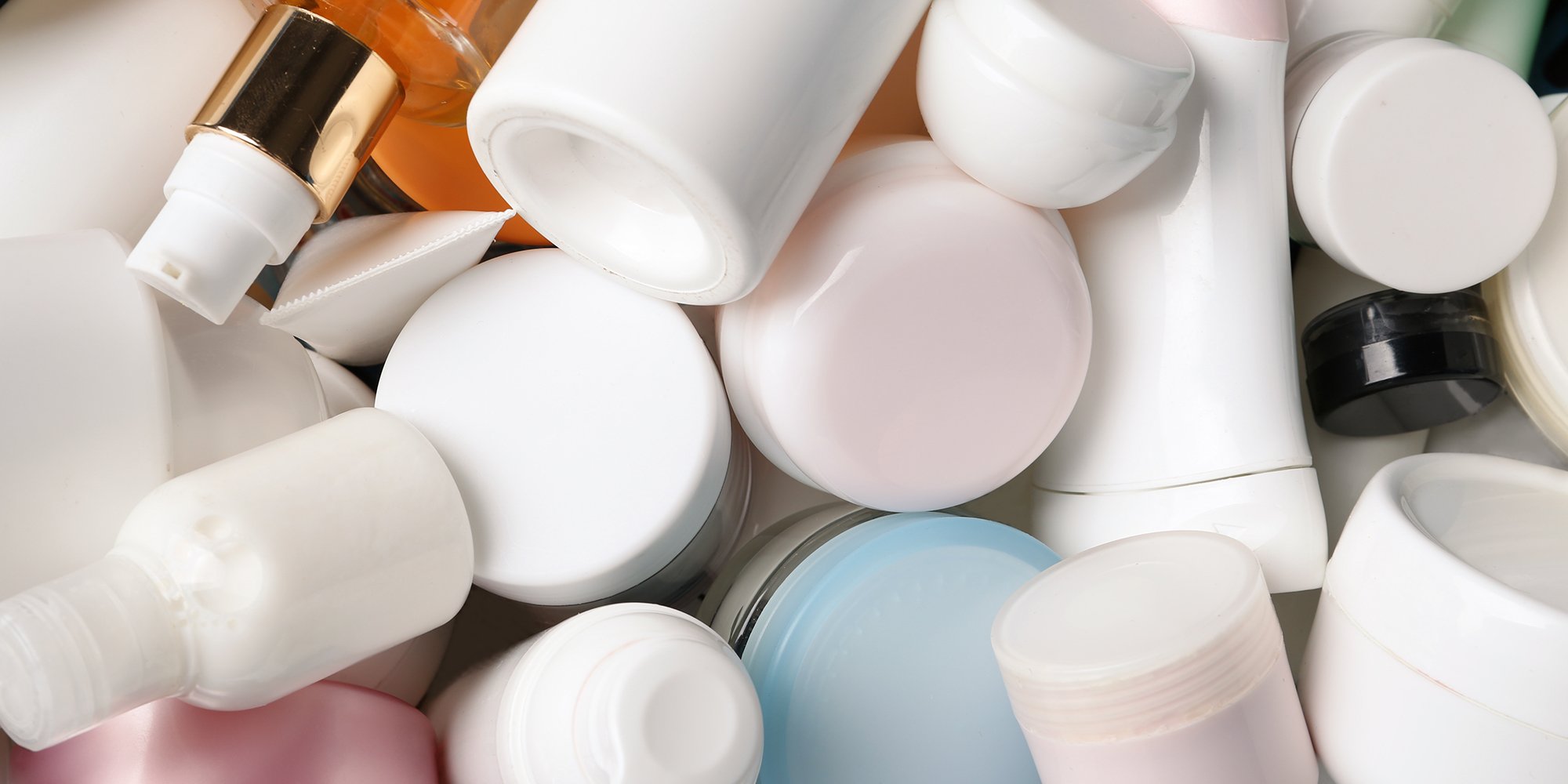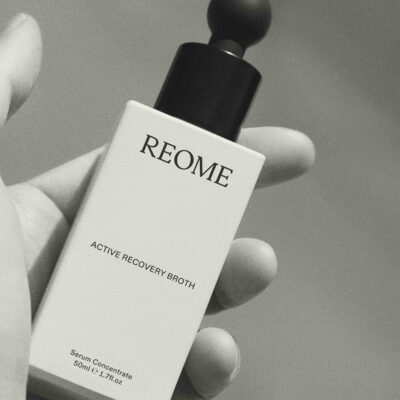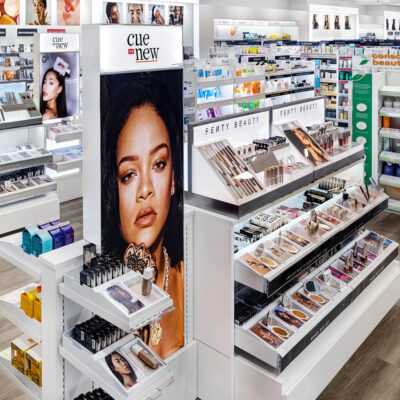
What Beauty Brand Founders Think About Retailers Destroying Returned Merchandise
By picking up on Ulta Beauty employee Bianca Ann Levinson’s viral TikTok video showing the retailer’s practice of destroying or “damaging out” returned beauty products, the publication Dazed stirred a heated discussion in the beauty industry about how to properly treat returned merchandise. The discussion was continued on the Instagram account of anonymous beauty industry watchdog Estée Laundry, where beauty brands brought up that the costs of demolished returned products are passed onto them.
We decided to further explore the issue of “damaging out” by asking 11 beauty entrepreneurs: What are the implications for beauty brands of this retail practice, and what alternatives do you think should be considered?
- Krysia Boinis Co-Founder, Vapour Beauty
While we agree that, for safety and sanitary reasons, brands cannot ethically resell returned items, we do believe there is a more sustainable way to approach returns. We empty product out of obviously used returns and responsibly recycle the packaging through TerraCycle. Any unopened, unused returned product becomes available for employees to enjoy at their own discretion.
- MURPHY D. BISHOP Co-Founder and CEO, The Better Skin Co.
If the retailer is going to allow the customer to continually buy, try and return, the retailer should shoulder the burden of the cost or split it with the vendor. Currently, the cost is passed on to the vendor, so the retailer is not overly concerned. If you are a legacy brand, you can likely absorb the cost. As an indie brand in a 1,200-door-plus chain, the chargeback cost can often make the difference in staying in the black or going into the red.
- Julian R. Addo Founder and CEO, Adwoa Beauty
As a DTC brand, we do not accept return products unless there is damage or a defect with the product. We provide accurate product descriptions, a how-to video on each product page, zoomed-in texture shots, real positive and negative testimonials, and a showroom that customers can stop by to smell, touch and try to make informed purchasing decisions.
As we enter into retail at Sephora, I understand that customers can use a product and return it with a valid receipt within the required time frame of the business. I strongly feel that the accountability should be placed back on the consumer. Returns can negatively impact a small, growing brand's bottom line, as the retailer doesn't take a loss. It falls back on the brand. Our return policy is completely too relaxed here in the U.S. While everybody is worried about plastic consumption and sustainability in packaging, the amount of hair and beauty products that are destroyed from returns alone on a daily and weekly basis is ridiculous and hypocritical I might add.
The industry should utilize this moment in history to fix our flaws post-COVID-19 and revamp our return policies. Require tamper-evident seals on packaging and allow exchanges where applicable. Retailers can still track product exchanges and require reason codes to any ineffectiveness. These can be relayed to the brand for possible enhancements or updates.
- Tess Finkle Founder, Y Cosmetics
I am a beauty industry publicist that started my own beauty brand, so I am very familiar with the back-and-forth tug between corporate policies and community preferences. The balancing act between appeasing consumers, brand executives, legal teams, shareholders and the entire ecosystem that makes a brand exist is extremely challenging. Big brands will forever err on the side of hyper caution. It's their "muscle memory" serving them. There is justified frustration on all ends of the spectrum.
Brands should create official partnerships with local women's shelters, where unwanted makeup can be donated directly by the consumer to the shelter to eliminate liability for the retailer. The shelter will then verify this transaction to its retail partner from where the unwanted product was originally purchased, which will, in turn, earn the buyer that dropped off the donation a store credit with the retailer. Women's shelters absolutely welcome these kinds of donations. Like any partnership, it will need to be regulated with technology, but it's 2020. I just read about a robot dog at a hospital in Boston, which leads me to believe this proposed "damaging out" solution is very doable.
- JOANN FOWLER Founder, Sappho New Paradigm
It is true companies have to follow strict regulations to make sure they are delivering intact, safely prepared and packaged cosmetics to their customers, and the industry policy of “damaging out” is in place to protect the company and the consumer should a returned product be contaminated. It is also heartbreaking to see all this waste. We can do better.
We are a very small company, independent of VC funds and so free to make our own decisions, albeit it takes much longer for our ideas to come to fruition. We decided early on that we would use the best ingredients and packaging, with the least amount of plastic possible. We also realized that, since a company our size and with our ethos, we cannot afford the cost or the loss of product for returned items. We would offer samples for sale whenever we could, both for our sake and Mother Earth. We package our samples in plastic tubes that are treated with biosphere and, therefore, biodegradable in a landfill in two to five years instead of hundreds. We did not see the point of a sampling program if we were just going to create more plastic waste.
The samples are big enough for a few applications, and the program has been quite successful. We were poised to have all our individual foundation samples stocked up and tone packages available and ready to go. However, unfortunately, due to present circumstances, this will now take a little while longer to accomplish. We also try to mitigate wrong color choices by offering color-matching sessions on social media whenever possible and we encourage customers to send us selfies in natural light to help the process. We know shades are hard to pick out online so we do our best to help. We also deal with each case on an individual basis by email with our online customers as personalized communication is key.
We are fortunate at Sappho to have limited returns from our retailers as well. However, that they even exist at all is troubling. As a consumer, whenever I buy online, I am very careful and conscious about my choices and the cost of making a mistake, both economically and environmentally. This travesty is all our responsibility. I never purchase with the idea of, “Oh, I’ll just return it," ever. I think no one in this day and age should. Interestingly enough, higher return rates occurred when we were selling to a large, very high-end department store chain with free returns, and not from our base of green beauty chains and independents.
What troubles me most is that a product that is still sealed or easily repurposed is being destroyed. Sealed products, pencils that could be sharpened, lipsticks that could be cut down, might all be viable for donations to nonprofits. However, we have become so litigious that we no longer take responsibility for our choices. This is a paradigm that has to shift if the planet is to survive.
Possibly, for instance—this is really just off the top of my head—we could come up with an idea similar to a food bank, a centralized depot for the dissemination of products to people in back to work projects, healing from cancer, etc. Regardless of the solution, it is incumbent on everyone to do their best to choose wisely to mitigate loss and find innovative ideas to bring to our lawmakers so we can move forward knowing we are making a difference.
- Geneva Fong Creative Director, Dome Beauty
When I first saw dumpster diving videos materialize in 2014, I was disheartened as a makeup artist and brand co-founder. We put so much work into a product, so when a product gets "damaged out," so do months/years of research, artistry, formulation, design and testing. It's like watching a beloved pet get tortured.
Returns in the beauty industry are notorious for producing waste and can bring a brand down as a net loss. "Damaging out" prevents dumpster divers from using/reselling returned product and is regarded as safer for beauty consumers. Protocols like the one demonstrated in the video have been in place for years and are necessary evils to protect the brand and consumer, although it's complicated.
As a makeup artist, I get several PR packages from other brands. This is what I do with excess product:
- Give some away to friends and other makeup artists, especially young artists.
- Keep in touch with local women's shelters and other charities to see if they take unused beauty product.
- Streeters, the artist agency that reps Pat McGrath, does an annual event called Beauty in the Park where their artists pool their unwanted makeup and give it away to attendees.
As we approach a more sustainable and less-is-more approach to beauty, there are much more sanitary and eco-conscious ways to manage the complicated issue of beauty returns:
- Stricter return policies should be a mandate for beauty retailers. The U.K., Australia and Brazil make returns for used items nearly impossible for sanitary reasons, whereas Sephora and Ulta in the U.S. have fairly lax policies in comparison. I shouldn't be allowed to return a mascara I bought five months ago for store credit.
- Companies like TerraCycle are great at recycling virtually anything. So, once the product is taken out for an eyeshadow, the component can be shipped to TerraCycle for proper recycling. We currently work with them and know they would welcome the recycling effort from retailers. We feel strongly about being more sustainable and responsible. It takes slightly more time, effort and cost, but these little steps make it worthwhile.
- I hope consumers can be more careful and use samples or take advantage of makeup artist demos so they can make more thoughtful decisions about a product versus going on a spree of impulse buys and returns.
- JENNIFER FREITAS Founder, The Truth Beauty Company
This is such a pet peeve of mine: people coming in trying to return their goods because it didn't work out, the color didn't match, they didn't like the weight, etc.
As a small independent merchant, this is extra hard to endure as we have no credit or buyback policies from brands that larger retailers like Sephora, Shoppers Drug Mart, Ulta and Walmart often have in place. These returns literally come from my pocket. We have a no-return policy on opened items and make sure our clients know that. Unopened products can be returned for store credit. We examine them carefully. Our policy is posted at our checkouts, on our website and sent via the emailed receipt.
While customers definitely have to be more conscious with their purchases (read reviews, ask friends for samples if they use the item you are looking at, ask the shops for samples), big retailers also need to start firming up their return policies. Knowing that returned items cannot be resold, they should have a policy that matches that. Throwing things in the garbage because we changed our mind is not the answer in 2020. Big retailers need to set the precedence. How they operate affects the expectations of consumers in general.
Brands could also make the move towards making samples more accessible. However, from speaking with brand founders, I have come to know that making sample sizes is often very costly and makes little financial sense. It is also difficult to finance when in startup mode. Buying power comes from large quantities purchased, and often that is not the case when brands begin their journey.
I think overall we need to share the burden to stop this waste, but we also will follow the lead of the companies that are big and strong to show us the way. Why would someone shop with me if they can't return, but can do so at Sephora?
- Joanna Montesano CEO and Founder, Saint Cosmetics
At the end of the day, I think the main priority, in all fairness, is to try to guarantee and validate to consumers that not only do we aim to provide satisfying end results, but, during the entire process, we remain as open and honest as possible. Why would someone return a product if they knew for certain that not only does the product perform well, but it actually does everything it says it can and is also eye-catching at the same time?
In regard to the products being destroyed, again, I think the best approach would be to really think twice about what we are offering to the consumer and, if they really don’t like the product and are that eager to return it, my ideal suggestion would be to gather a bunch of information as well as other people’s suggestions and take them highly into consideration before developing a new product. This way, there is the less likely chance of the consumer returning the product.
I think overall, we as beauty professionals in the beauty industry, need to take a closer and harder look at what we are offering. After all, they are our customers, and we must strive to deliver the best results we can in order to reduce any waste and the money being spent.
- Rochelle Graham-Campbell CEO, Alikay Naturals
I find it irresponsible the way the beauty and retail industry handles the “damage out” policies. I was unaware when I was just a consumer of how all of this worked, and certainly wasn’t aware of the major negative impact this has on brands. It is more than just "damage out" returns. Damages are also coming from products being sampled and opened at shelf, leaving the product labeled as “tainted or unsellable” by the retailer.
From the returns standpoint, manufacturers have no control. We are left to pay expensive monthly and quarterly fees for these “damaged out” products. Retailers send us invoices and the amounts can be costly. They are considered as markdown costs. We are all advised to build markdowns into our cost of doing business, but that doesn’t mean the costs won’t be a shocking unexpected amount.
I don’t like the fact that manufacturers' voices aren’t heard regarding this because I believe in transparency. Other than reports showing your amount due, name of the product and store number, you have no way to verify if and how many items were actually damaged. Also, no information is given to separate what is “damaged out” due to a return, product damaged in-store or product damaged in transit. It's all lumped together. When I was a new business owner selling in retail we asked, “Can the product be returned to us, not to resell, but to inspect to verify what’s causing the damages?” This is not the industry norm, so it was denied. These markdowns from damages are still one of the highest costs of doing business in retail.
From the sampling on shelf standpoint, how we try to combat this is by adding temper prevention seals inside and outside of our packaging, which helps somewhat, but isn’t foolproof. Retailers don’t have enough space on the shelf for a manufacturer to have testers, especially major retailers. This is only an option in boutique stores, beauty supplies and salons, not in major retail chains.
From the customer responsibility standpoint, I wish customers understood how just opening a bottle or testing something that isn’t a tester is costing the brand behind the product. Some brands aren’t major corporations, so the impact on us is much higher. Overall, this is a major issue, and I do hope through discussions like this, it not only sheds light for consumers, but starts a conversation to force change in how beauty brands do business in retail.
- Brooke Boles Co-Founder and President, Copperhed
Come on guys, we have to do better than this! After watching the video, my heart was immediately filled with grief and loss…as if we need more! It reminded me of the five-year painstaking journey of creating our brand, which is a clean, vegan, cruelty-free and sustainable line of hair care and supplements created to improve the health of the scalp, promote growth, and stimulate production of melanin–hair pigment.
One of the ingredients costs $9,000 a kilo! Furthermore, we customized our packaging, which took over a year of blood, sweat and tears, sleepless nights, anxiety, not to mention the large capital required. We also proudly launched a recycle program where we pay the postage for our customers to return six Copperhed bottles for us to recycle and offer a $10 reward towards a future purchase.
With that said, “destroy in field” goes against everything we created our brand on. It is unacceptable, leading me to insist there are better options that should to be explored. To think that these large corporations are increasing their carbon footprint to prevent liabilities seems ironic, especially in a time of crisis. There are so many unemployed, including their own laid off or furloughed employees, needing basic hygienic supplies right now. This should make them feel shameful for frisking them as they leave their jobs. Furthermore, employees that are well taken care of usually don’t resort to stealing. I strongly urge the retailers and vendors to work together and immediately pivot their strategy on this with two approaches:
1. Evaluate why returns are happening. Is it lack of education on the product, or are there better deals on other sites? Was sampling an option before the purchase? Maybe it was a defective batch? Helping to evaluate the reasons can certainly lower the expected returns as well as holding consumers more accountable.
2. Most of the retailers require their vendors to work on 30-, 60- and sometimes 90-day terms. If the product is not paid for, it is still the vendor’s product. This policy should be negotiated prior to working with any retailer. Vendors should offer a program to pay for freight back and release the retailer from liabilities. We work with state-of-the-art laboratories which can implement testing to see if a product was tampered with or contaminated. Then, we can choose to donate to a charity or gift to a friend. If product is contaminated, then the packaging can still be disinfected and refilled.
In sum, if they have the time to go squeeze a liter of shampoo down the drain, they have the time to pack it in a box and request a proper RA (return authorization). In other words, do not dump the poo...spread the poo.
- Ashley Prange Founder, Au Naturale
The current policies at big-box retailers are incredibly unsustainable for the environment and hard on small businesses as they are the ones receiving chargebacks on those items. Companies should be encouraged to use sustainable packaging; retailers should partner with companies like TerraCycle to give packaging a second life; and consumers should not be able to return the product. There are in-store testers for a reason.
If you have a question you’d like Beauty Independent to ask beauty entrepreneurs, please send it to editor@beautyindependent.com






Leave a Reply
You must be logged in to post a comment.